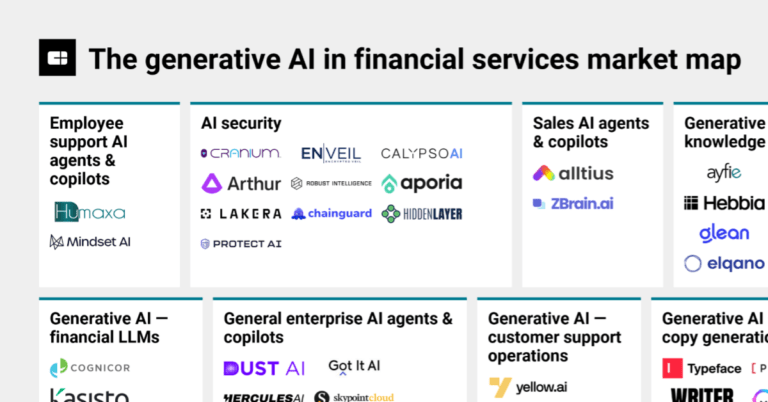
Dust
Founded Year
2022Stage
Series A | AliveTotal Raised
$21.46MLast Raised
$16M | 1 yr agoRevenue
$0000Mosaic Score The Mosaic Score is an algorithm that measures the overall financial health and market potential of private companies.
+215 points in the past 30 days
About Dust
Dust develops generative AI-based software to build workflows on top of large language models and semantic search. The platform offers a range of training and support resources, scales to meet the needs, and helps secure compliance with industry standards. The company was founded in 2022 and is based in Paris, France.
Loading...
ESPs containing Dust
The ESP matrix leverages data and analyst insight to identify and rank leading companies in a given technology landscape.
The AI agent development platforms market offers solutions for enterprises to develop and launch AI agents based on foundation models. These platforms include frameworks and infrastructure to build AI agents that can execute tasks, answer queries, and automate workflows autonomously. Some vendors offer “drag-and-drop” interfaces and other no-code or low-code solutions that enable teams without in-…
Dust named as Challenger among 15 other companies, including OpenAI, Anthropic, and Cohere.
Loading...
Research containing Dust
Get data-driven expert analysis from the CB Insights Intelligence Unit.
CB Insights Intelligence Analysts have mentioned Dust in 6 CB Insights research briefs, most recently on Sep 5, 2025.
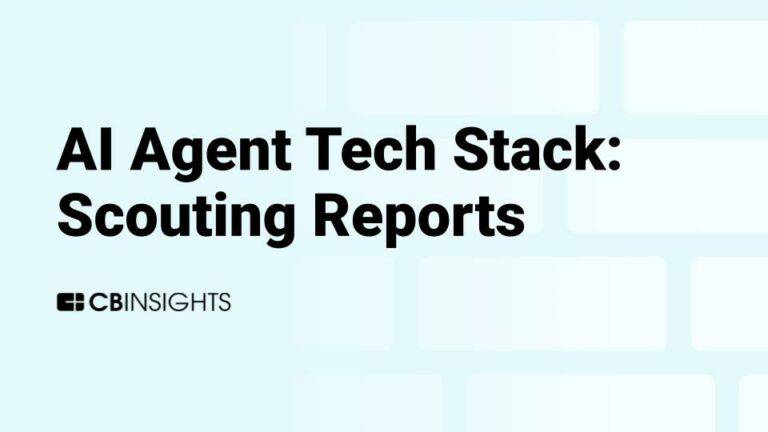
Sep 5, 2025 report
Book of Scouting Reports: The AI Agent Tech Stack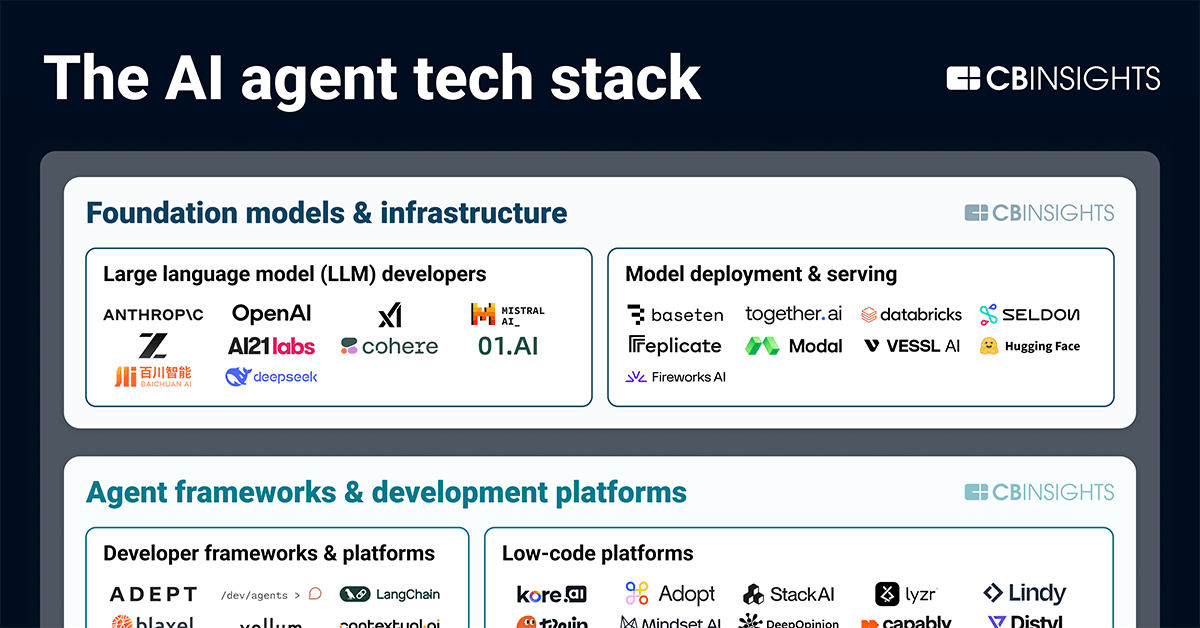
Aug 22, 2025
The AI agent tech stack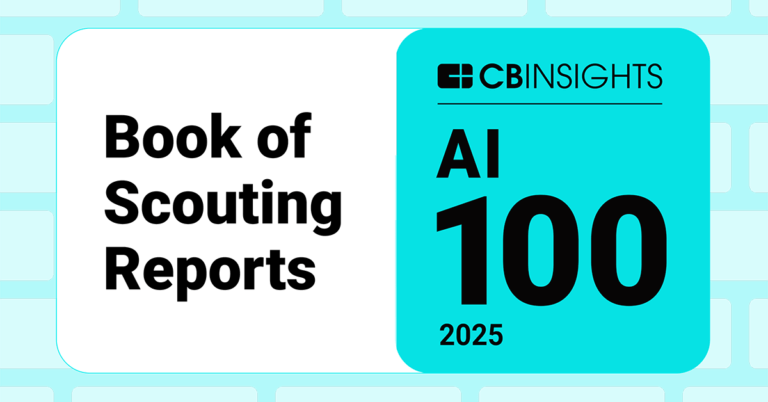
May 16, 2025 report
Book of Scouting Reports: 2025’s AI 100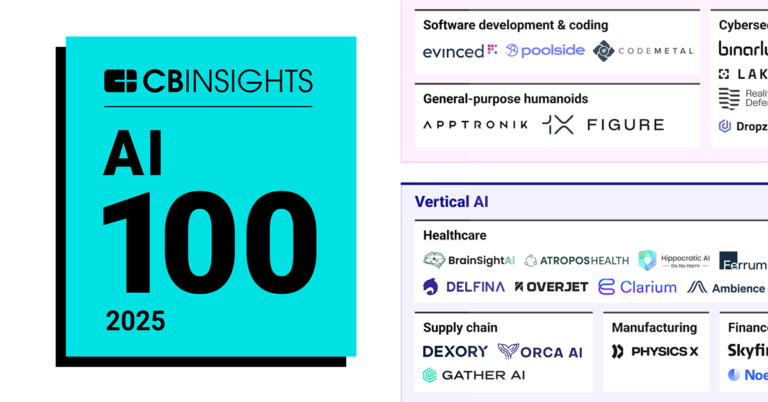
Apr 24, 2025 report
AI 100: The most promising artificial intelligence startups of 2025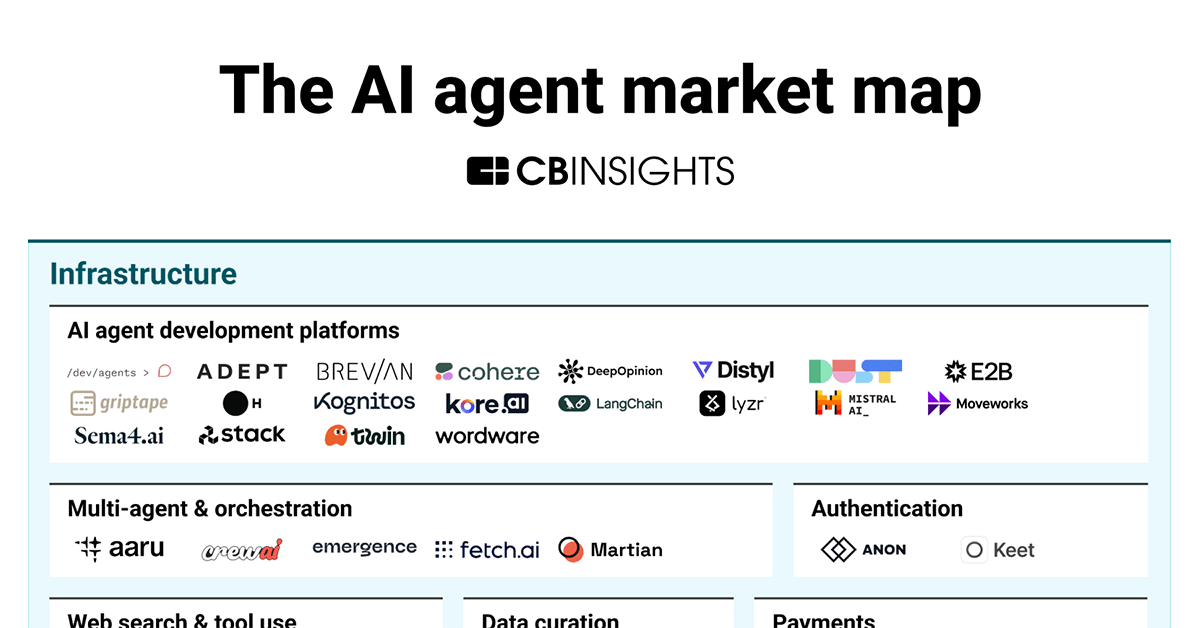
Mar 6, 2025
The AI agent market mapExpert Collections containing Dust
Expert Collections are analyst-curated lists that highlight the companies you need to know in the most important technology spaces.
Dust is included in 5 Expert Collections, including Generative AI.
Generative AI
2,793 items
Companies working on generative AI applications and infrastructure.
Artificial Intelligence
12,580 items
Companies developing artificial intelligence solutions, including cross-industry applications, industry-specific products, and AI infrastructure solutions.
AI agents
376 items
Companies developing AI agent applications and agent-specific infrastructure. Includes pure-play emerging agent startups as well as companies building agent offerings with varying levels of autonomy. Not exhaustive.
AI 100 (2025)
100 items
AI 100 (All Winners 2018-2025)
100 items
Latest Dust News
Jul 5, 2025
Dust hits $6M ARR helping enterprises build AI agents that actually do stuff instead of just talking Like Read Time: min Want smarter insights in your inbox? Sign up for our weekly newsletters to get only what matters to enterprise AI, data, and security leaders. Subscribe Now Dust, a two-year-old artificial intelligence platform that helps enterprises build AI agents capable of completing entire business workflows, has reached $6 million in annual revenue — a six-fold increase from $1 million just one year ago. The company’s rapid growth signals a shift in enterprise AI adoption from simple chatbots toward sophisticated systems that can take concrete actions across business applications. The San Francisco-based startup announced Thursday that it has been selected as part of Anthropic’s “Powered by Claude” ecosystem, highlighting a new category of AI companies building specialized enterprise tools on top of frontier language models rather than developing their own AI systems from scratch. “Users want more than just conversational interfaces,” said Gabriel Hubert, CEO and co-founder of Dust, in an interview with VentureBeat. “Instead of generating a draft, they want to create the actual document automatically. Rather than getting meeting summaries, they need CRM records updated without manual intervention.” Dust’s platform goes far beyond the chatbot-style AI tools that dominated early enterprise adoption. Instead of simply answering questions, Dust’s AI agents can automatically create GitHub issues, schedule calendar meetings, update customer records, and even push code reviews based on internal coding standards–all while maintaining enterprise-grade security protocols. How AI agents turn sales calls into automated GitHub tickets and CRM updates The company’s approach becomes clear through a concrete example Hubert described: a business-to-business sales company using multiple Dust agents to process sales call transcripts. One agent analyzes which sales arguments resonated with prospects and automatically updates battle cards in Salesforce. Simultaneously, another agent identifies customer feature requests, maps them to the product roadmap, and in some cases, automatically generates GitHub tickets for small features deemed ready for development. “Each call transcript is going to be analyzed by multiple agents,” Hubert explained. “You’ll have a sales battle card optimizer agent that’s going to look at the arguments the salesperson made, which ones were powerful and seem to resonate with the prospect, and that’s going to go and feed into a process on the Salesforce side.” This level of automation is enabled by the Model Context Protocol (MCP), a new standard developed by Anthropic that allows AI systems to securely connect with external data sources and applications. Guillaume Princen, Head of EMEA at Anthropic, described MCP as “like a USB-C connector between AI models and apps,” enabling agents to access company data while maintaining security boundaries. Why Claude and MCP are powering the next wave of enterprise AI automation Dust’s success reflects broader changes in how enterprises are approaching AI implementation. Rather than building custom models, companies like Dust are leveraging increasingly capable foundation models — particularly Anthropic’s Claude 4 suite — and combining them with specialized orchestration software. “We just want to give our customers access to the best models,” Hubert said. “And I think right now, Anthropic is early in the lead, especially on coding related models.” The company charges customers $40-50 per user per month and serves thousands of workspaces ranging from small startups to large enterprises with thousands of employees. Anthropic’s Claude models have seen particularly strong adoption for coding tasks, with the company reporting 300% growth in Claude Code usage over the past four weeks following the release of its latest Claude 4 models. “Opus 4 is the most powerful model for coding in the world,” Princen noted. “We were already leading the coding race. We’re reinforcing that.” Enterprise security gets complex when AI agents can actually take action The shift toward AI agents that can take real actions across business systems introduces new security complexities that didn’t exist with simple chatbot implementations. Dust addresses this through what Hubert calls a “native permissioning layer” that separates data access rights from agent usage rights. “Permission creation, as well as data & tool management is part of the onboarding experience to mitigate sensitive data exposure when AI agents operate across multiple business systems,” the company explains in technical documentation. This becomes critical when agents have the ability to create GitHub issues, update CRM records, or modify documents across an organization’s technology stack. The company implements enterprise-grade infrastructure with Anthropic’s Zero Data Retention policies, ensuring that sensitive business information processed by AI agents isn’t stored by the model provider. This addresses a key concern for enterprises considering AI adoption at scale. The rise of AI-native startups building on foundation models instead of creating their own Dust’s growth is part of what Anthropic calls an emerging ecosystem of “AI native startups”—companies that fundamentally couldn’t exist without advanced AI capabilities. These firms are building businesses not by developing their own AI models, but by creating sophisticated applications on top of existing foundation models. “These companies have a very, very strong sense of what their end customers need and want for that specific use case,” Princen explained. “We’re providing the tools for them to kind of build and adapt their product to those specific customers and use cases they’re looking for.” This approach represents a significant shift in the AI industry’s structure. Instead of every company needing to develop its own AI capabilities, specialized platforms like Dust can provide the orchestration layer that makes powerful AI models useful for specific business applications. What Dust’s $6M revenue growth signals about the future of enterprise software The success of companies like Dust suggests that the enterprise AI market is moving beyond the experimental phase toward practical implementation. Rather than replacing human workers wholesale, these systems are designed to eliminate routine tasks and context-switching between applications, allowing employees to focus on higher-value activities. “By providing universal AI primitives that make all company workflows more intelligent as well as a proper permissioning system, we are setting the foundations for an agent operating system that is future-proof,” Hubert said. The company’s customer base includes organizations convinced that AI will fundamentally change business operations. “The common thread between all customers is that they’re pretty stemmed towards the future and convinced that this technology is going to change a lot of things,” Hubert noted. As AI models become more capable and protocols like MCP mature, the distinction between AI tools that simply provide information and those that take action is likely to become a key differentiator in the enterprise market. Dust’s rapid revenue growth suggests that businesses are willing to pay premium prices for AI systems that can complete real work rather than just assist with it. The implications extend beyond individual companies to the broader structure of enterprise software. If AI agents can seamlessly integrate and automate workflows across disconnected business applications, it could reshape how organizations think about software procurement and workflow design—potentially reducing the complexity that has long plagued enterprise technology stacks. Perhaps the most telling sign of this transformation is how naturally Hubert describes AI agents not as tools, but as digital employees that show up to work every day. In a business world that has spent decades connecting systems with APIs and integration platforms, companies like Dust are proving that the future might not require connecting everything—just teaching AI to navigate the chaos we’ve already built. Daily insights on business use cases with VB Daily If you want to impress your boss, VB Daily has you covered. We give you the inside scoop on what companies are doing with generative AI, from regulatory shifts to practical deployments, so you can share insights for maximum ROI. Read our Privacy Policy
Dust Frequently Asked Questions (FAQ)
When was Dust founded?
Dust was founded in 2022.
Where is Dust's headquarters?
Dust's headquarters is located at 86 Avenue Wagram, Paris.
What is Dust's latest funding round?
Dust's latest funding round is Series A.
How much did Dust raise?
Dust raised a total of $21.46M.
Who are the investors of Dust?
Investors of Dust include Motier Ventures, GG1, Sequoia Capital, Seedcamp, Connect Ventures and 6 more.
Who are Dust's competitors?
Competitors of Dust include Stack AI and 1 more.
Loading...
Compare Dust to Competitors
Composable Prompts specializes in application development through the integration of large language models in various industries. The company offers a platform for the creation, testing, and deployment of API tasks, ensuring structured interaction with LLMs for businesses. It primarily serves sectors that require content interaction capabilities, such as marketing, education, and customer support. It was founded in 2024 and is based in Paris, France.

Adept provides enterprise artificial intelligence (AI) solutions in the technology sector. The company offers tools that automate workflows across various software applications, allowing users to perform other tasks. Adept's AI is integrated into existing business processes, executing tasks while following company rules and procedures. It was founded in 2022 and is based in San Francisco, California.

Glean is an enterprise AI platform that provides tools for workplace productivity across various sectors. Its main offerings include AI-assisted search, custom generative AI applications, and management of AI agents. The platform is used by departments such as engineering, customer service, sales, and human resources, in industries including retail and financial services. It was founded in 2019 and is based in Palo Alto, California.

n8n serves as a workflow automation platform that integrates artificial intelligence (AI) capabilities with business process automation in the technology sector. The platform includes a visual builder for creating workflows, the ability to integrate with various applications or application program interfaces (APIs), and allows coding in Javascript and Python for specific tasks. n8n is used by technical teams in sectors like information technology (IT) operations, security operations, and sales automation. It was founded in 2019 and is based in Berlin, Germany.

Boomi is a provider of integration platform as a service (iPaaS) solutions focused on connectivity and automation across various business sectors. It offers services including API management, workflow automation, and data synchronization to integrate applications and data. Its platform is designed to cater to the needs of industries such as manufacturing, healthcare, retail, financial services, and education, among others. It was founded in 2000 and is based in Conshohocken, Pennsylvania.
Tiledesk provides customer service automation solutions that utilize artificial intelligence technology within various business sectors. The company offers tools for creating and deploying AI agents that assist in customer interactions and support internal workflows across different channels. It platform serves the e-commerce, healthcare, financial services, telecom, tourism, manufacturing, education, and professional services industries. The company was founded in 2020 and is based in Soleto, Italy.
Loading...

